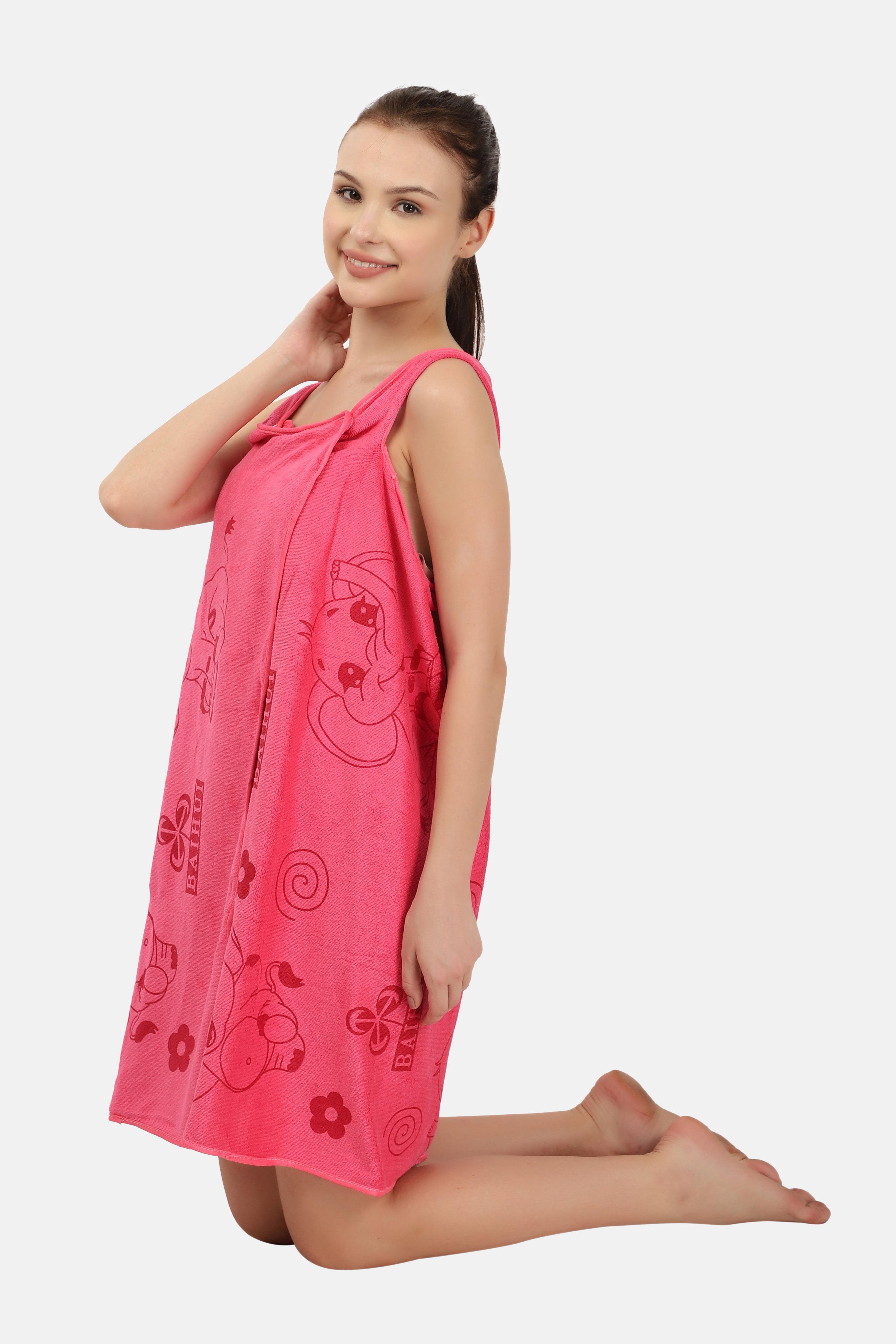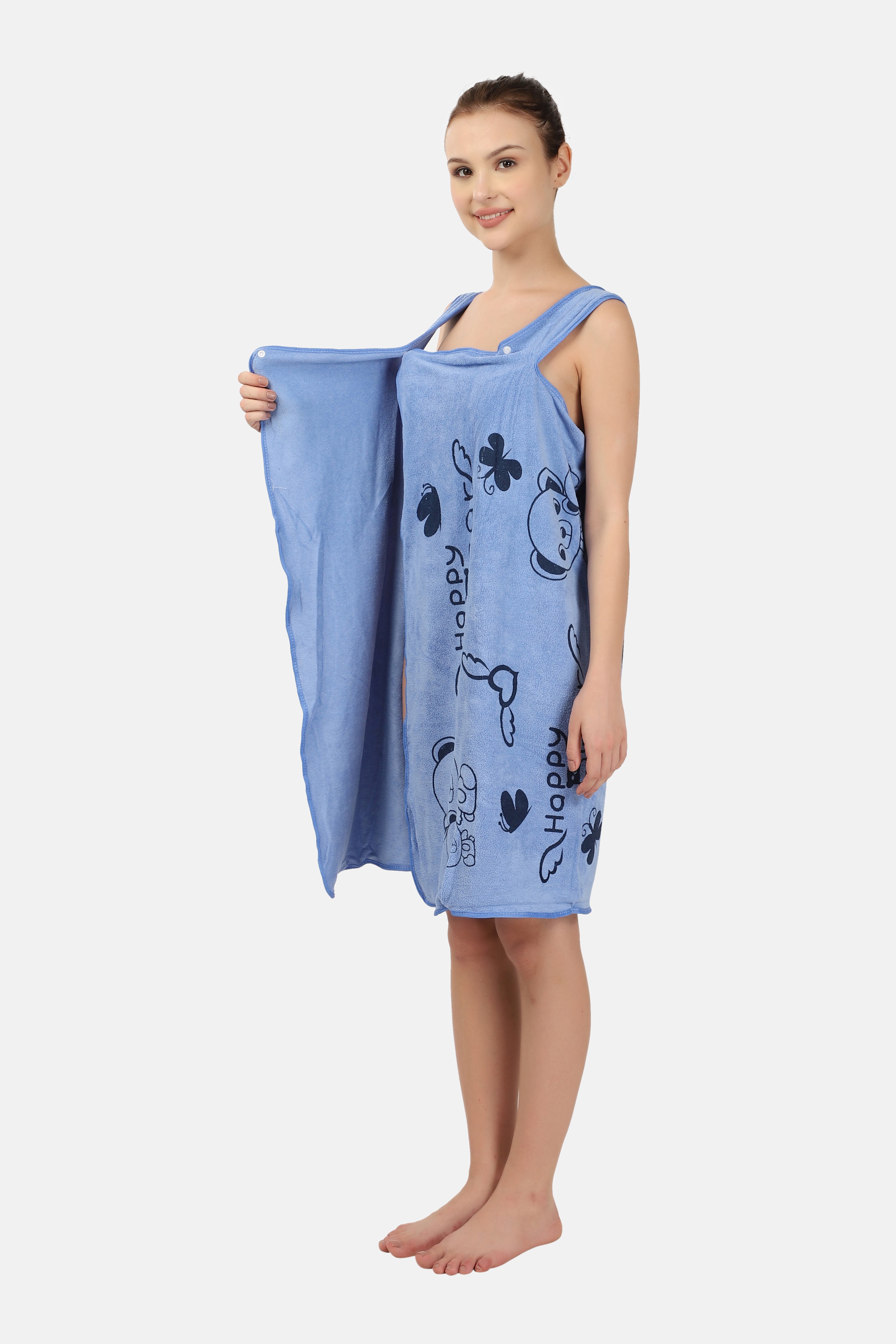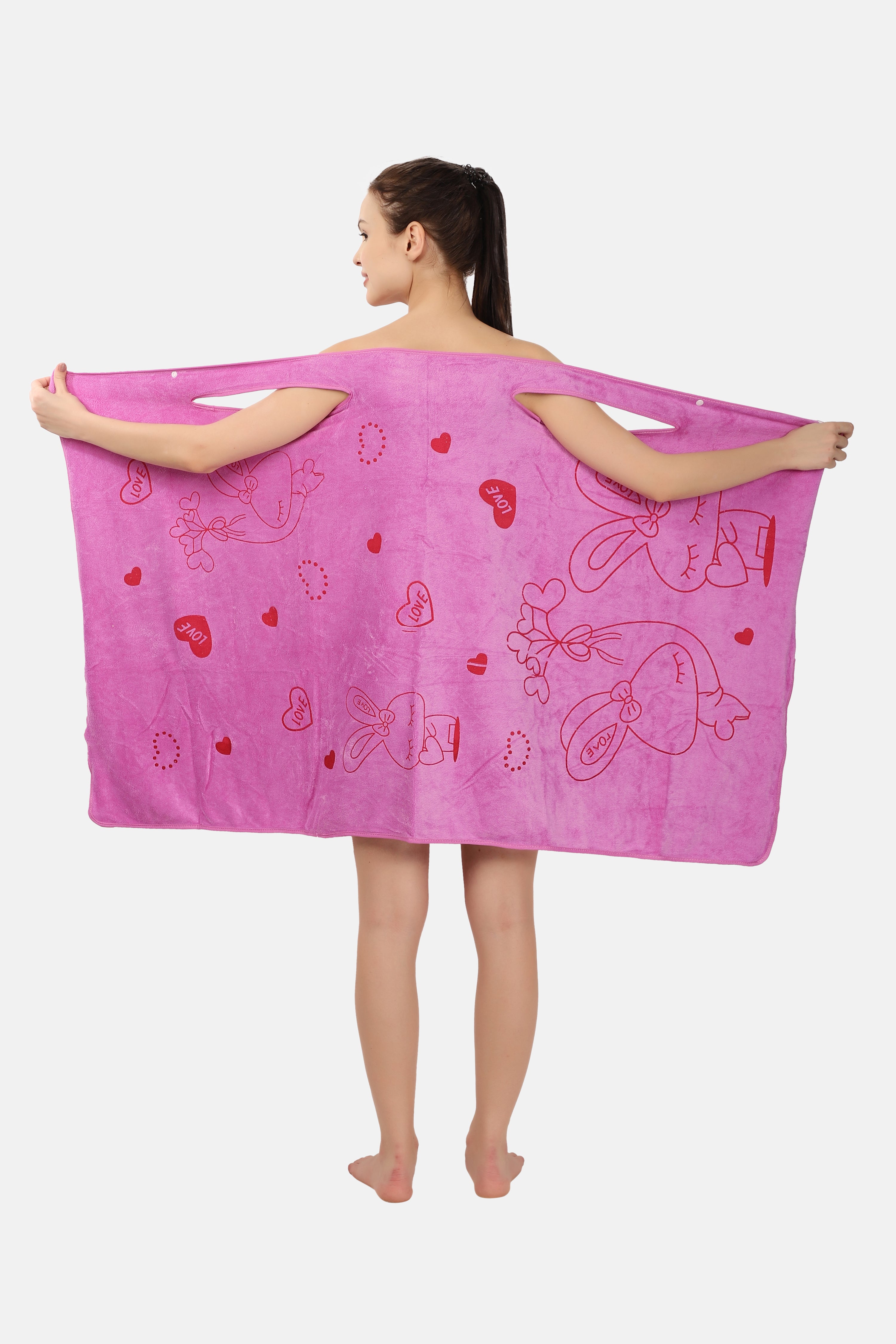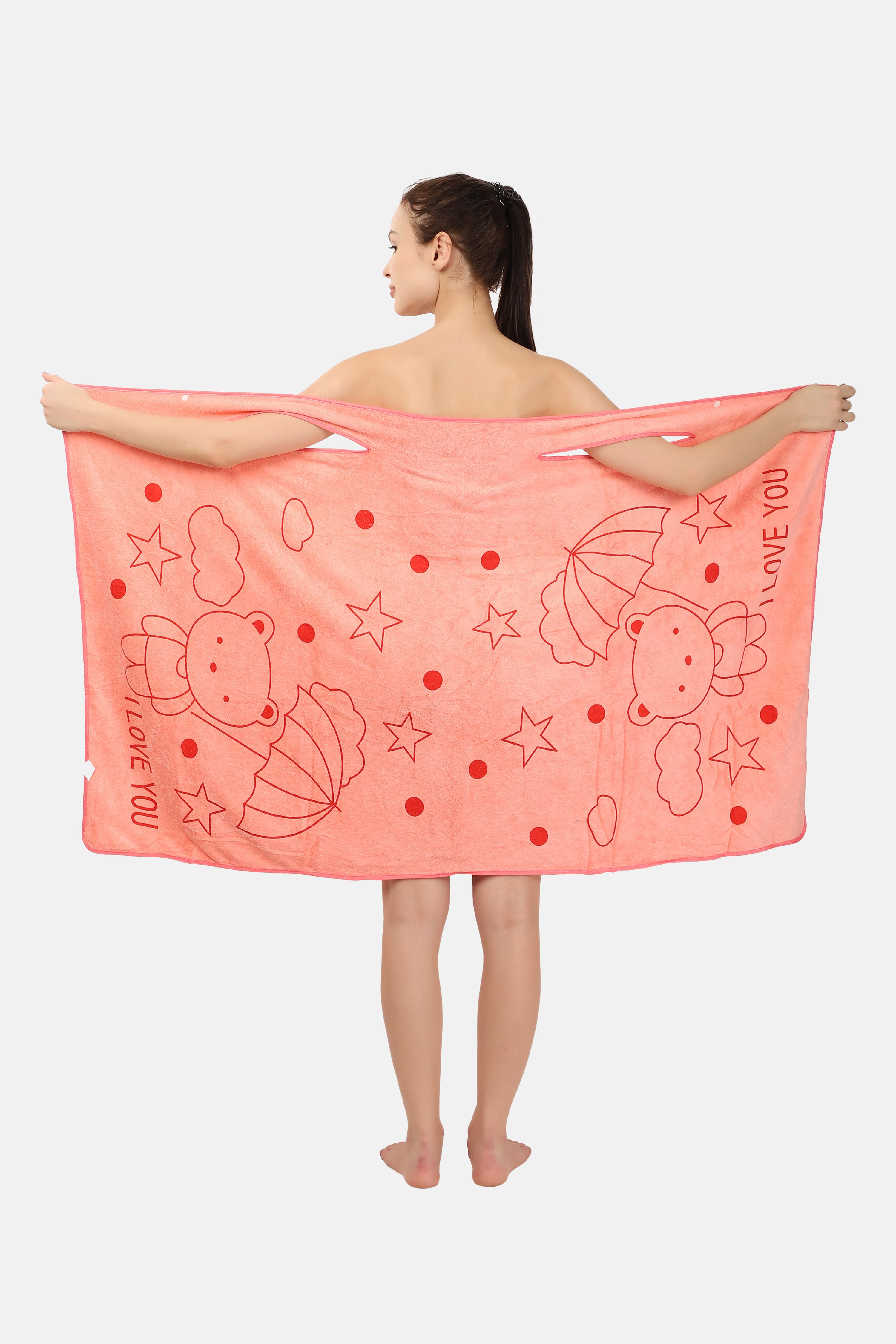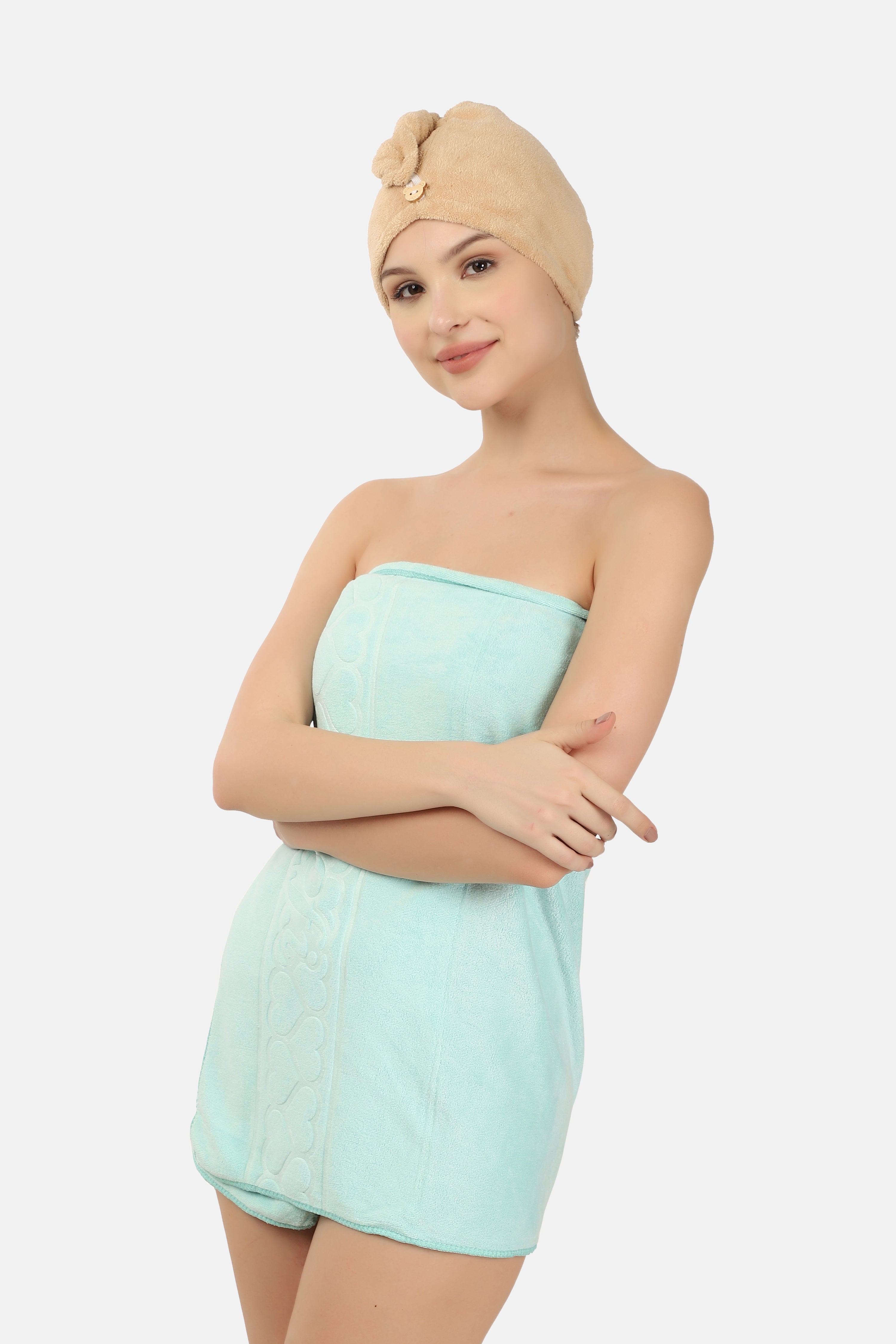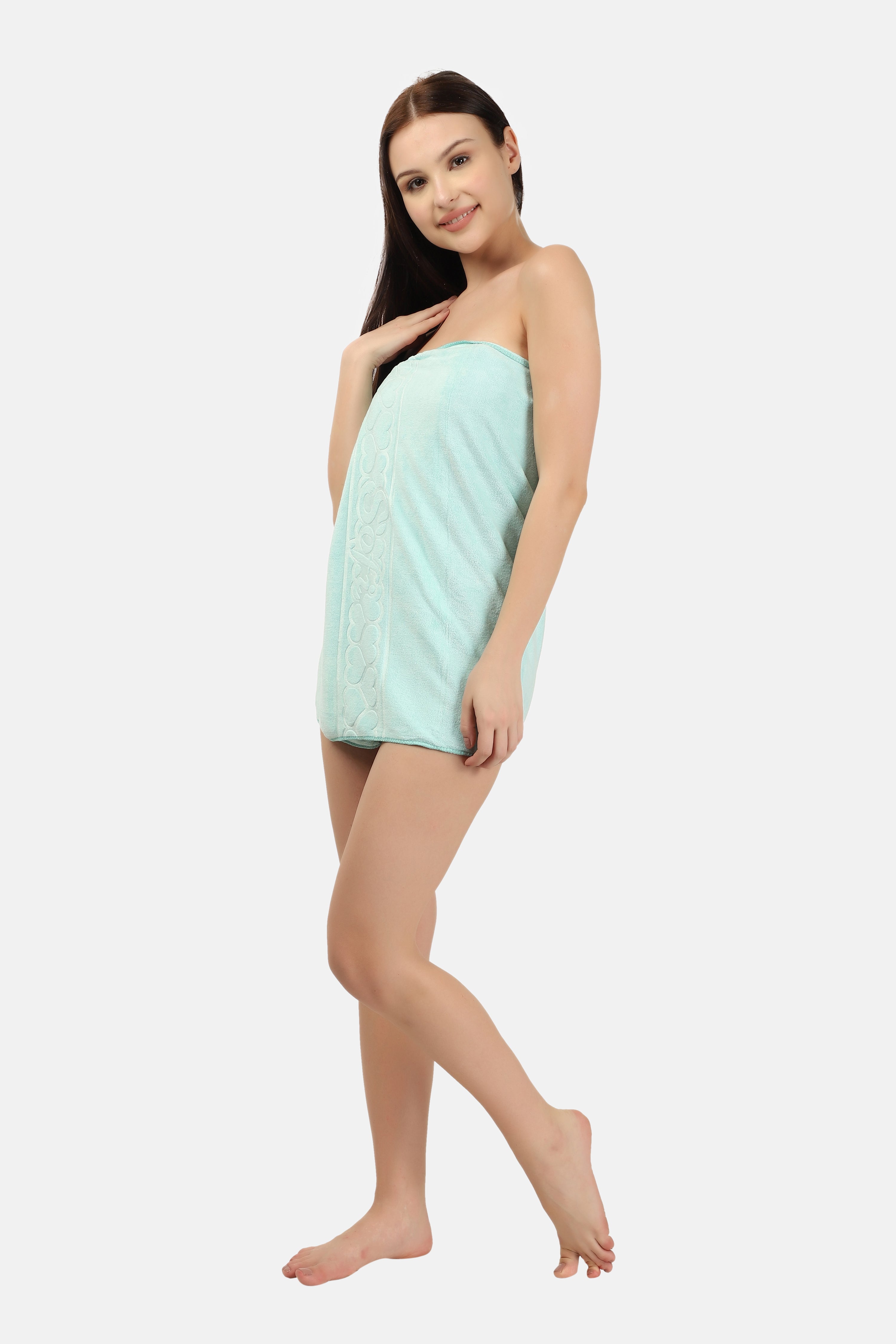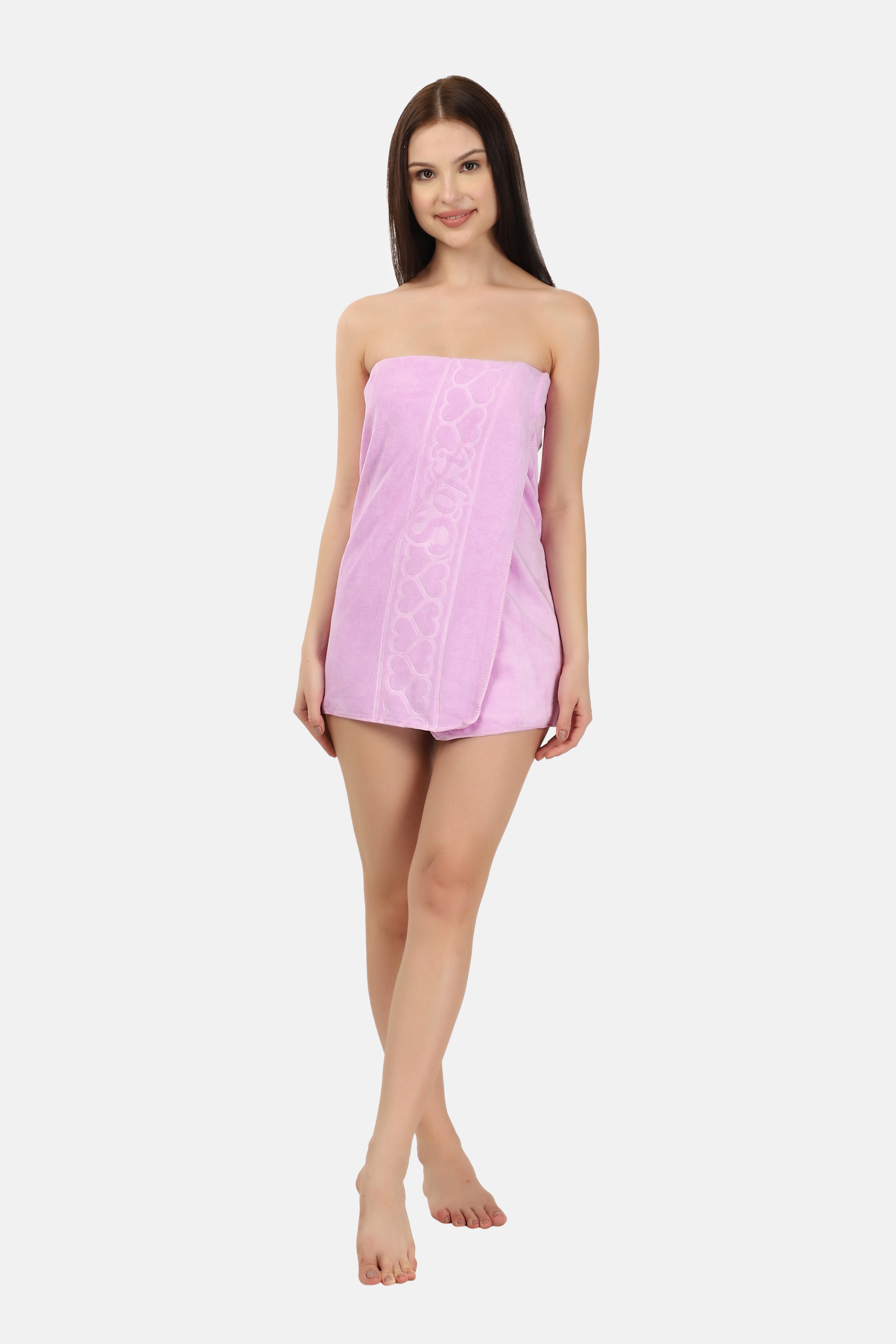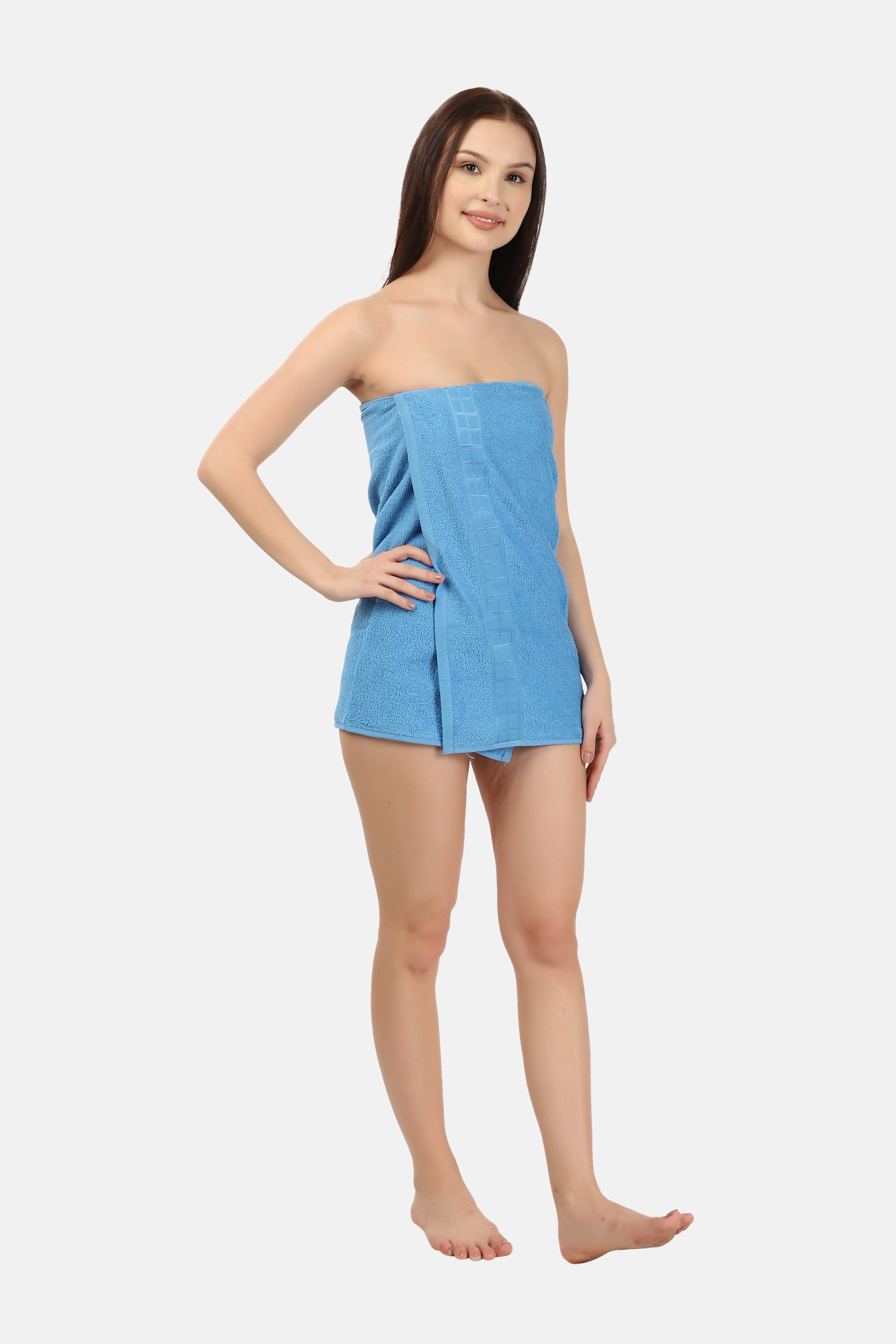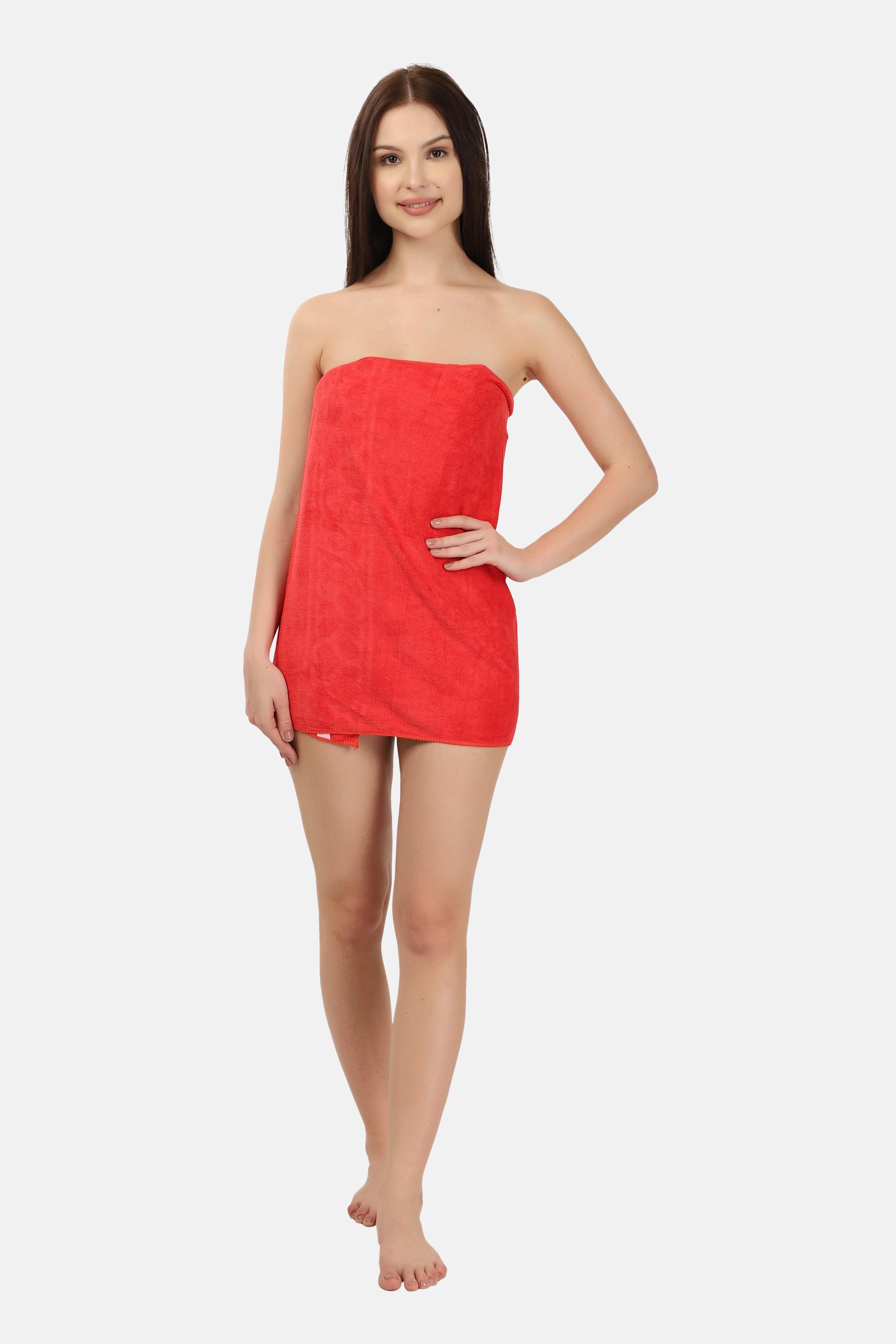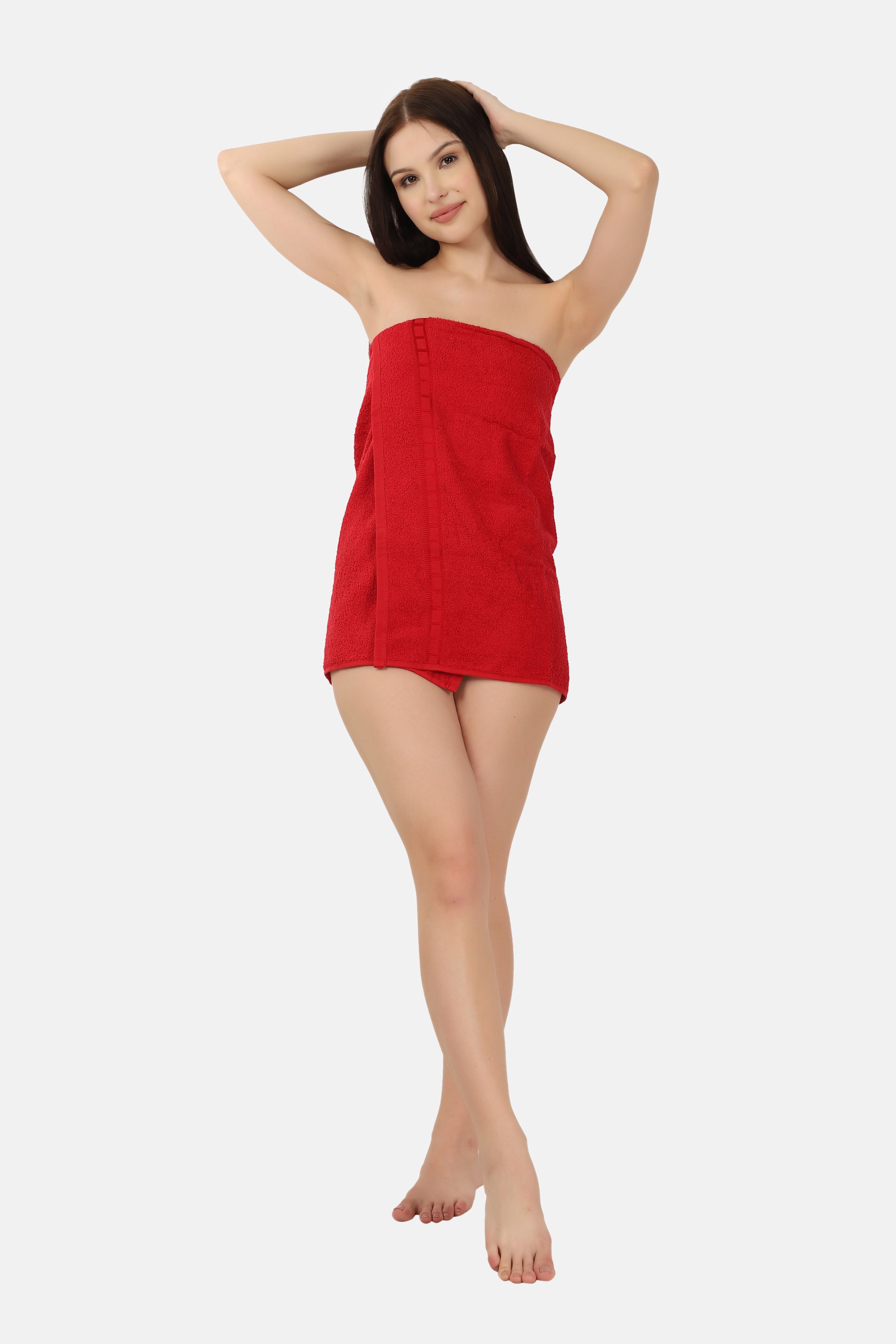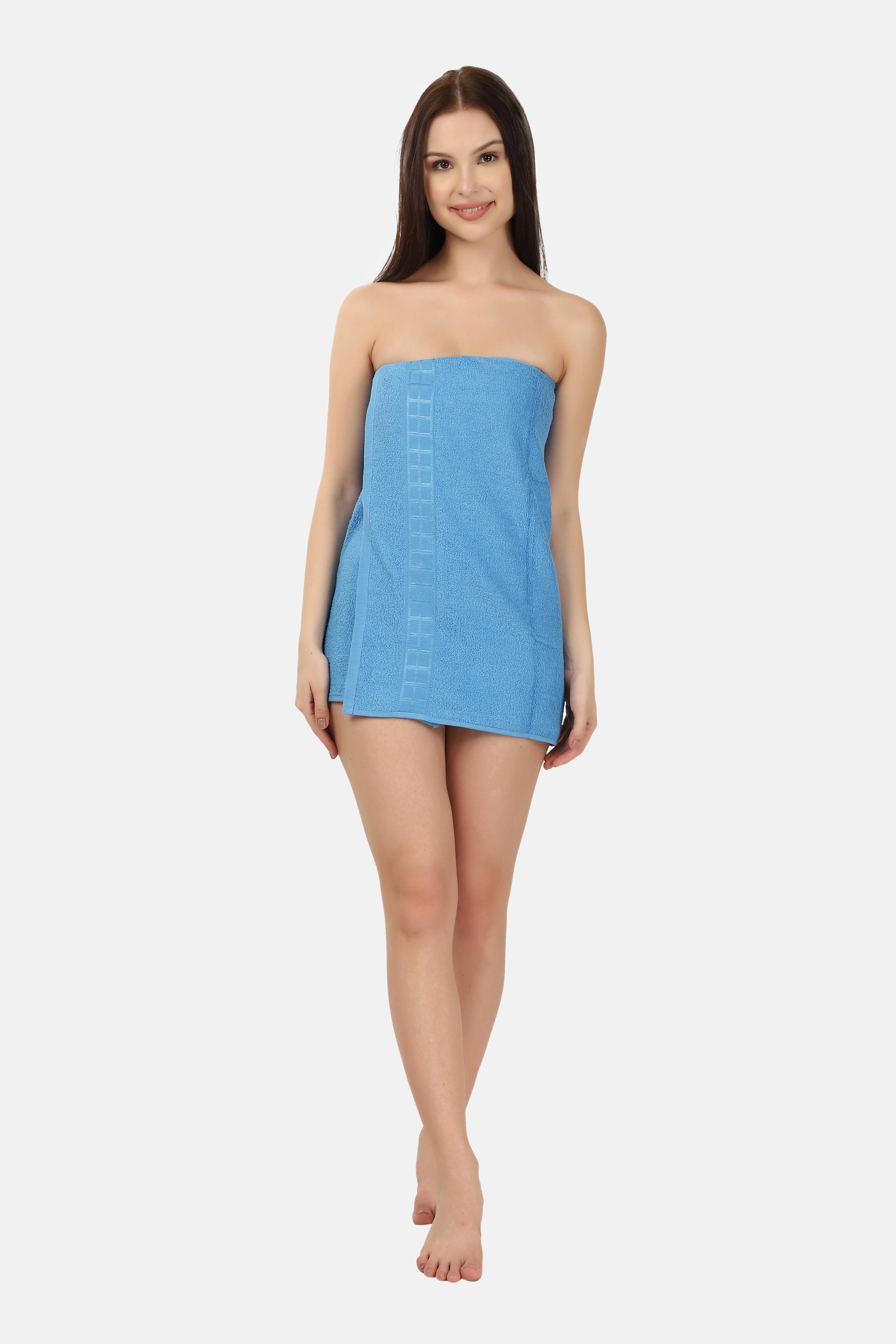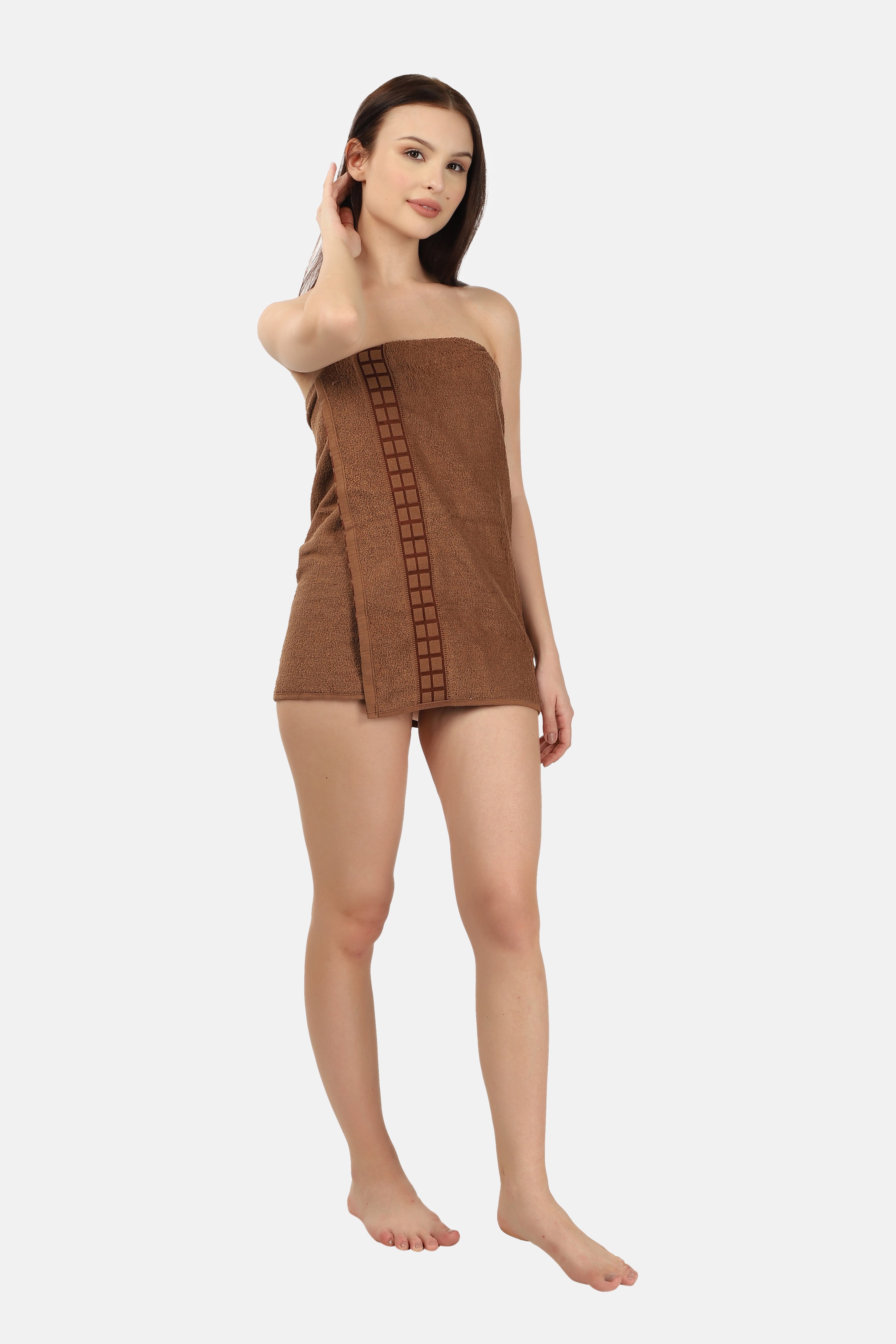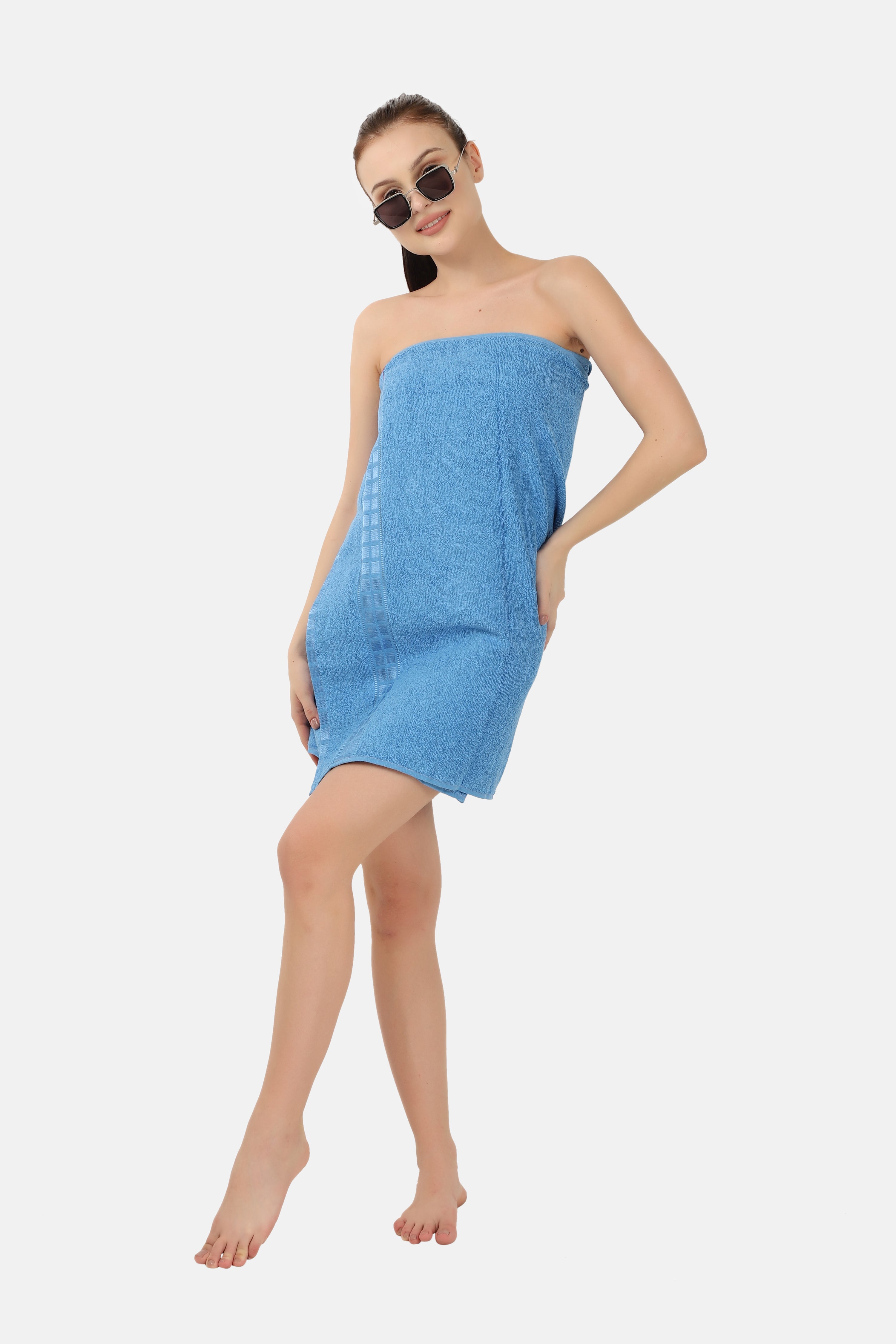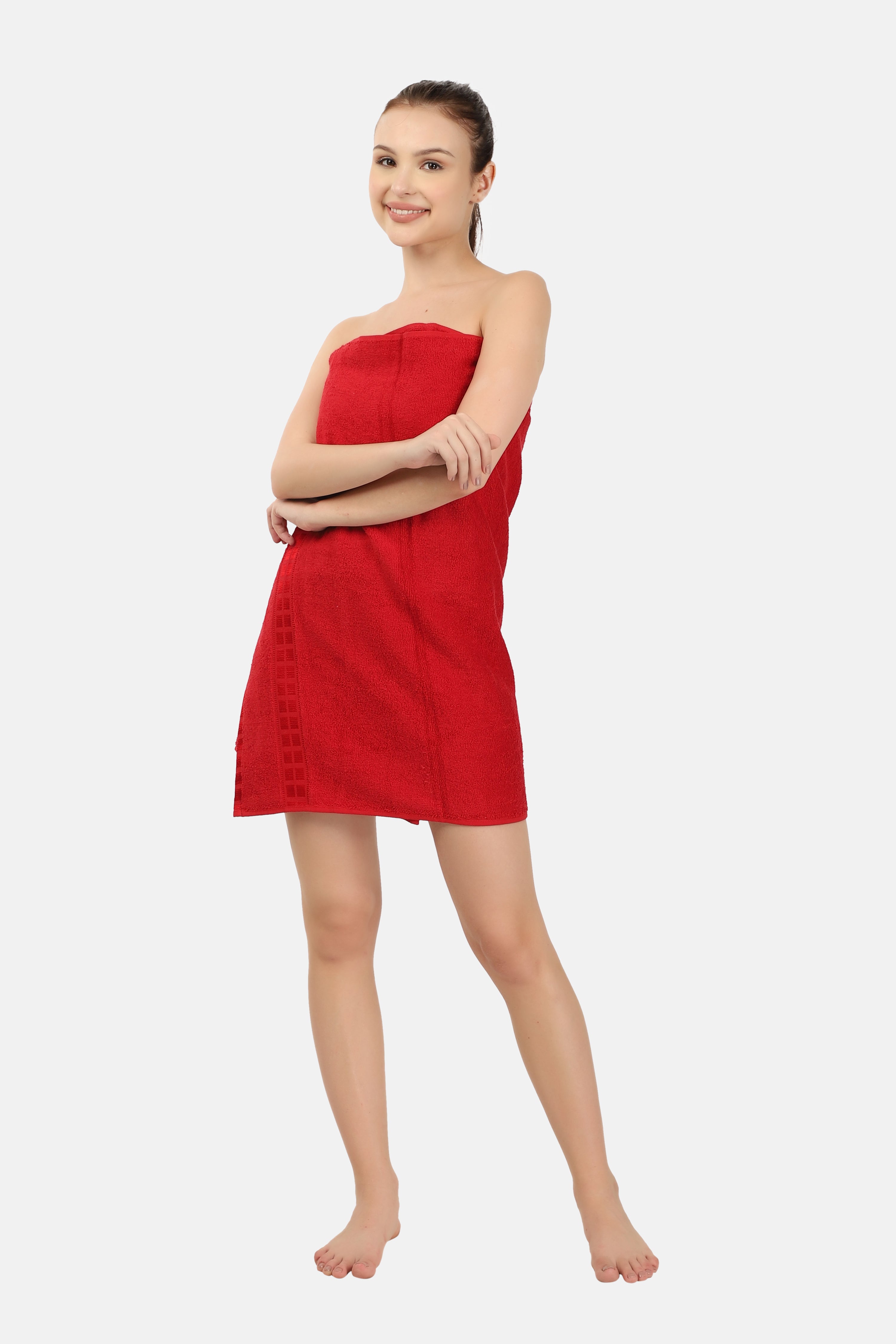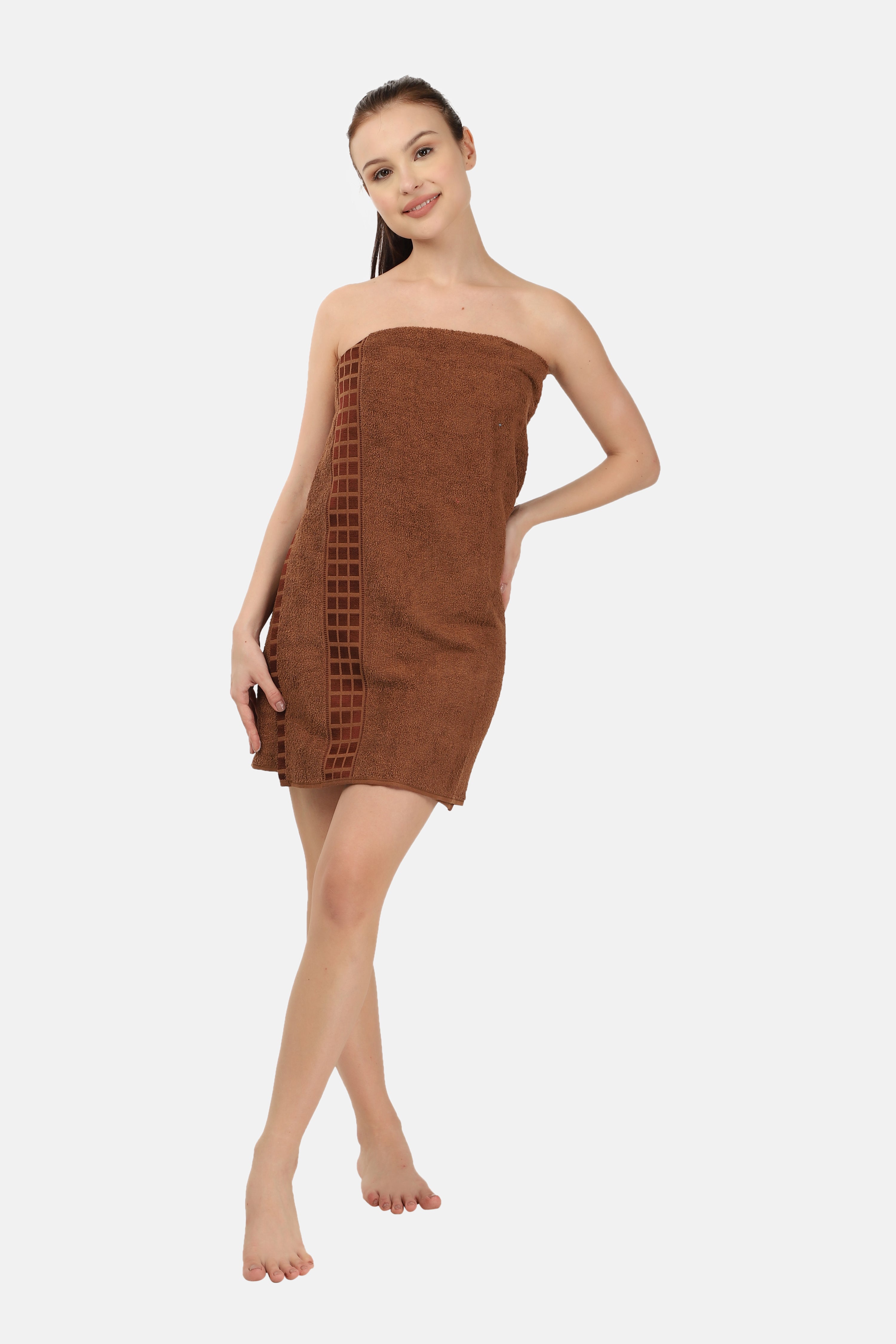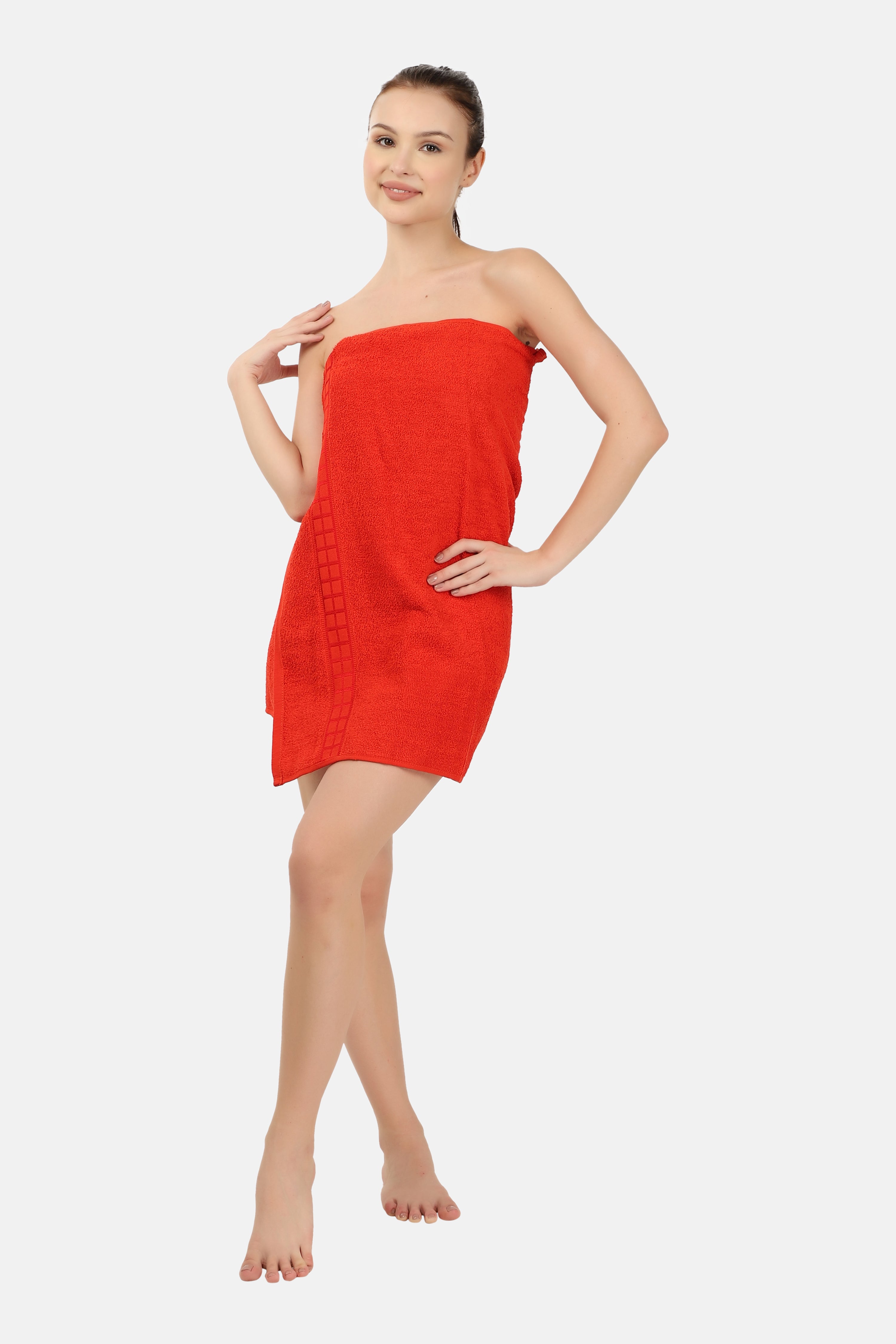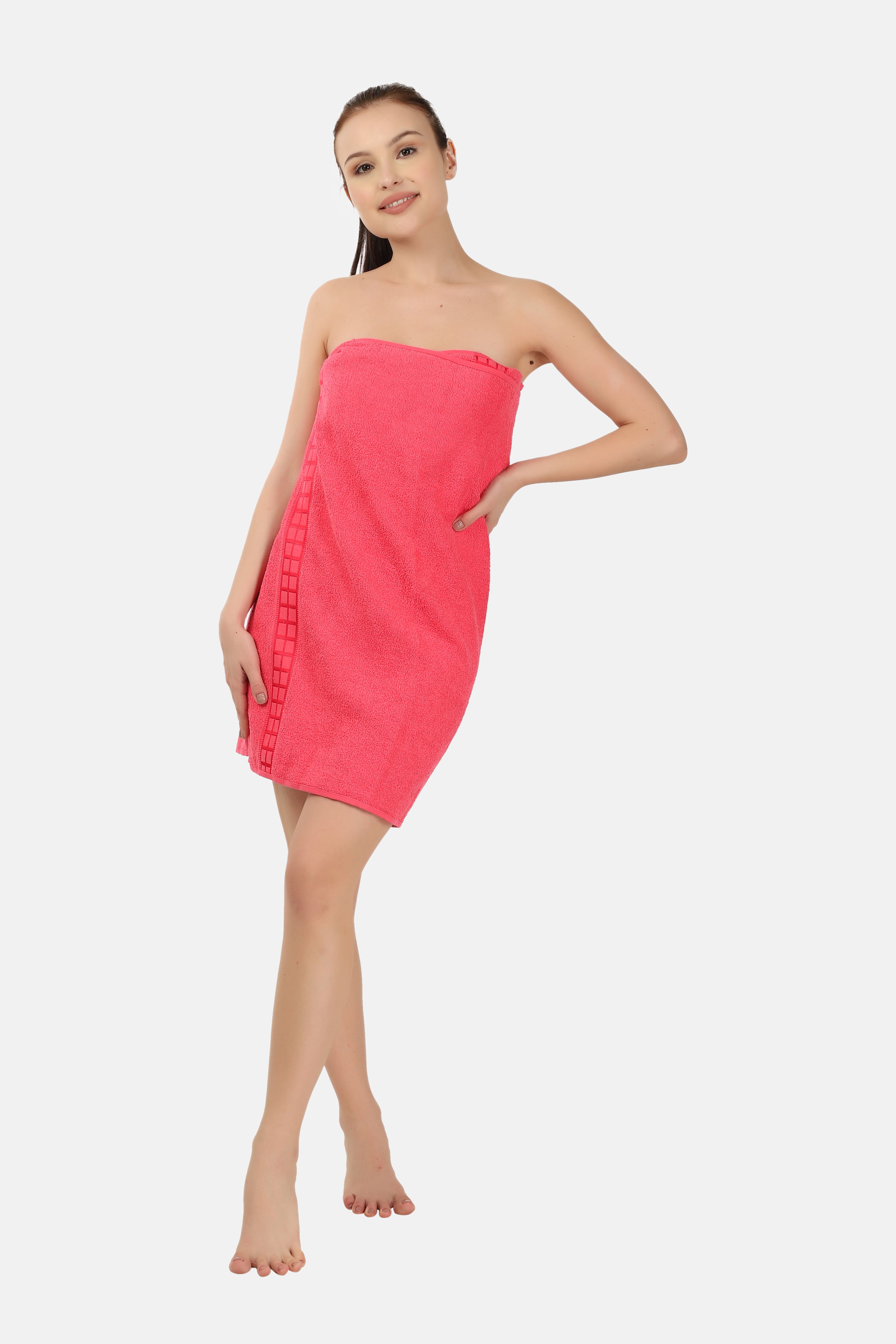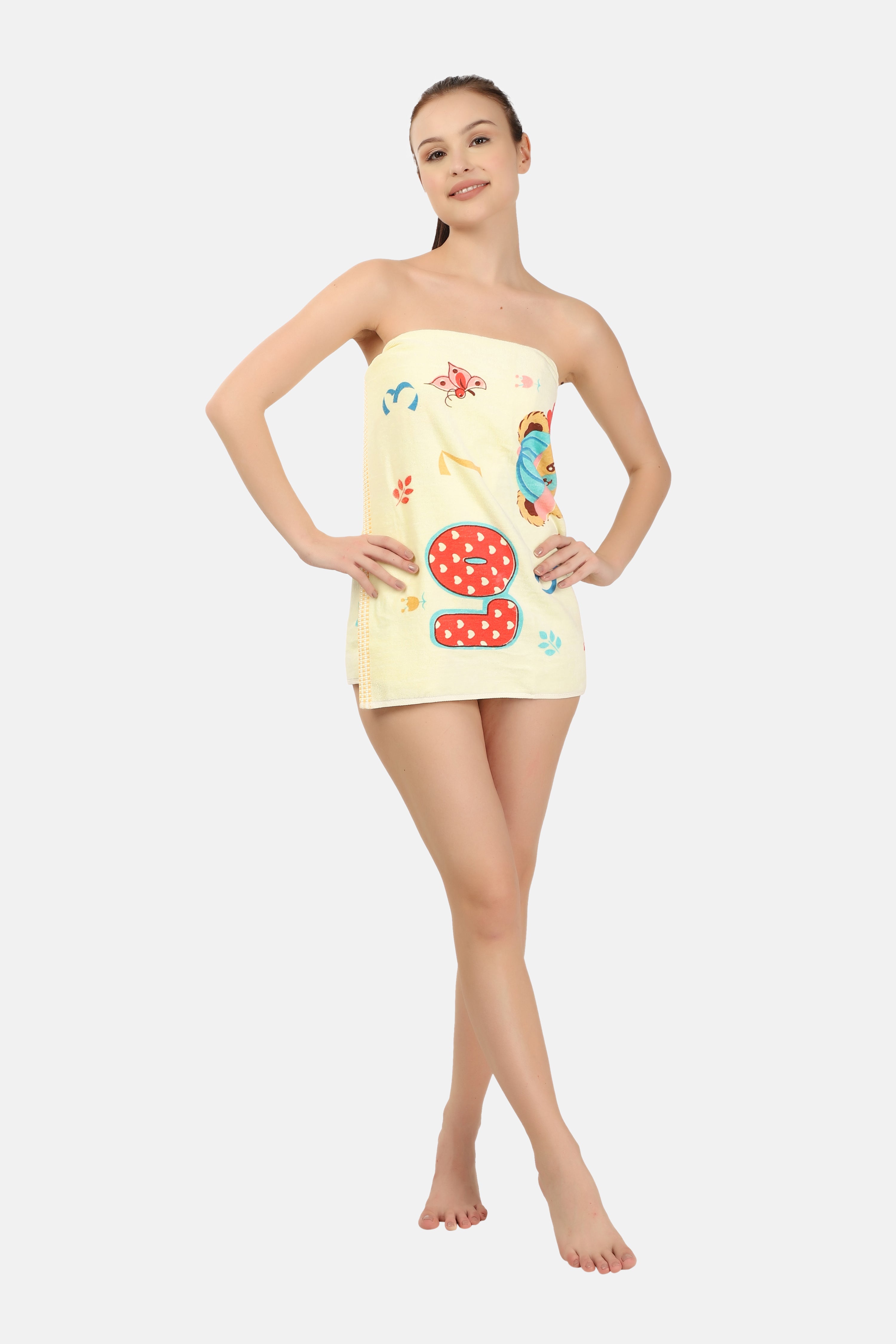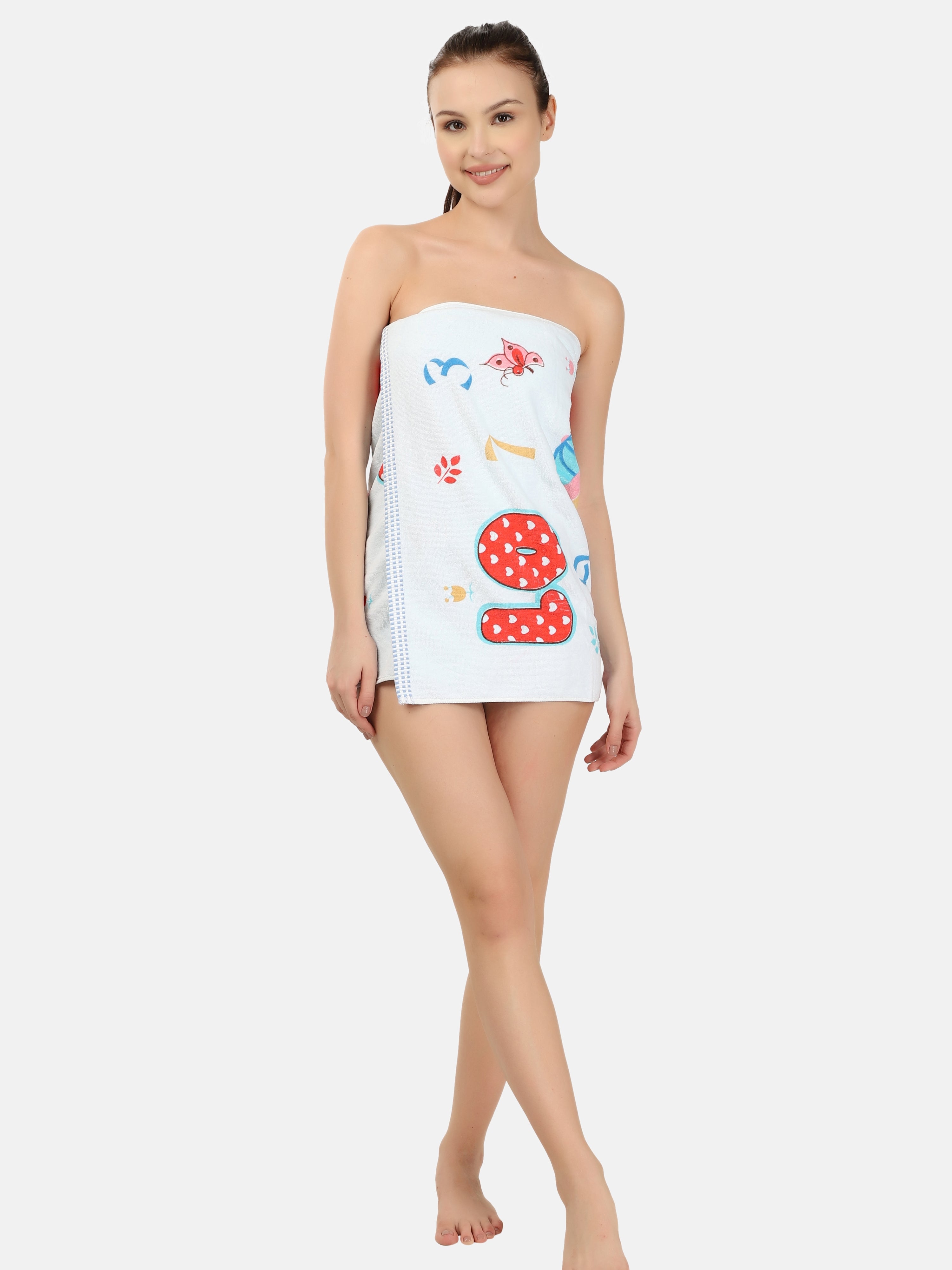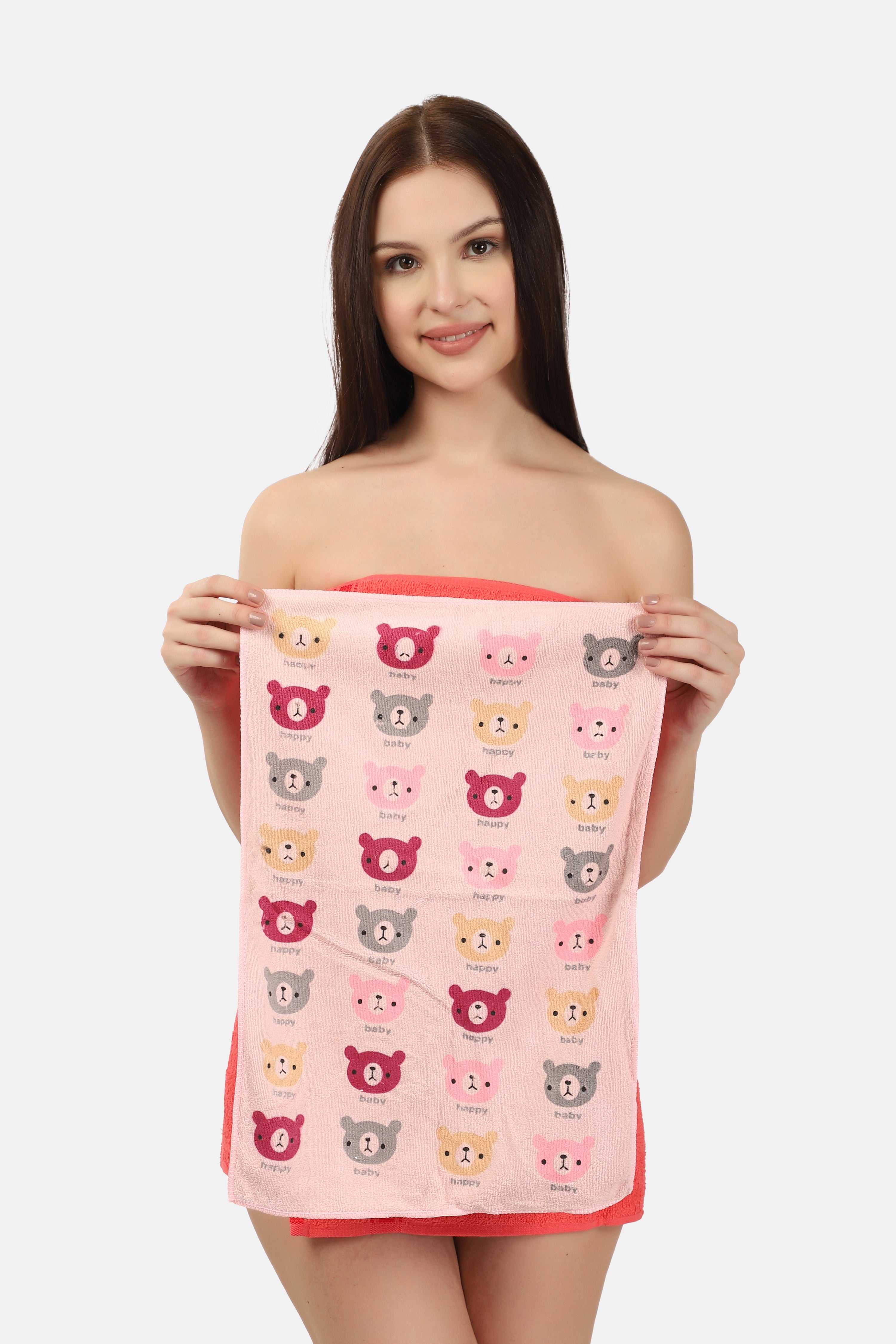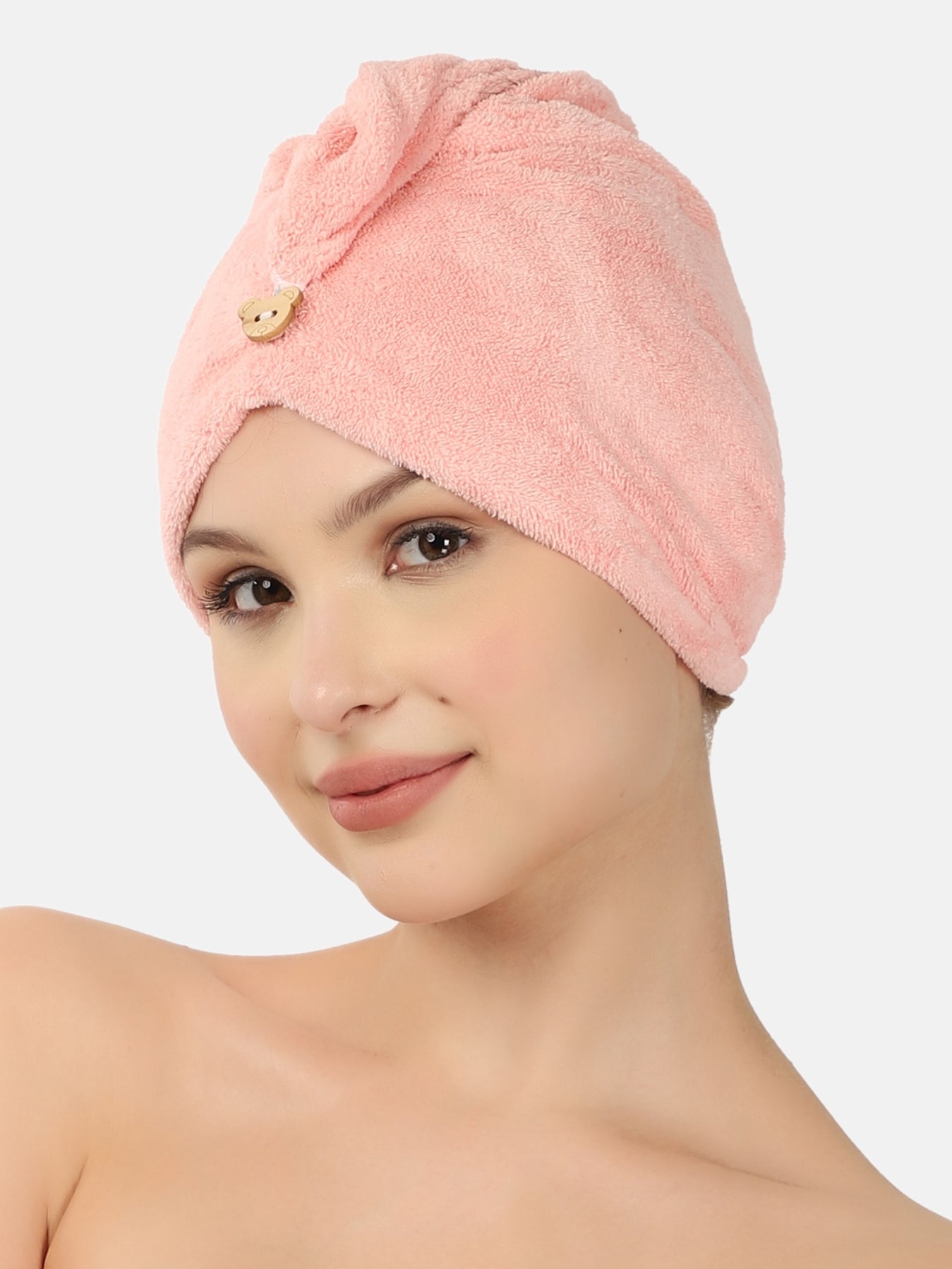Buy
Trendy Towels Online In
India
Shop Huge
variety of Towels
Towel is a versatile and essential
household item used for drying and wiping the body or various surfaces. It is
made from absorbent fabric, typically cotton or a blend of fibers, designed to
soak up moisture and provide comfort. Towels come in various sizes,
thicknesses, and designs to suit different needs and preferences. From bath
towels to hand towels, beach towels, and kitchen towels, they play a crucial
role in maintaining hygiene and cleanliness in our daily lives.
Types of Towels
Bath Towels
Bath towels are larger in size and are commonly used to dry the body
after bathing or showering. They provide ample coverage and are designed to
efficiently absorb water, leaving the body feeling dry and comfortable.Hand Towels
Hand towels are smaller in size and are primarily used for drying
the hands after washing. They are often placed near sinks in bathrooms and
kitchens for easy access.Beach Towels
Beach towels are larger and more vibrant than regular towels,
designed for use at the beach or poolside. They are made from quick-drying and
sand-resistant materials, providing comfort and style for outdoor activities.- Kitchen towels, also known as dish towels or tea towels, are used in
the kitchen for drying dishes, wiping countertops, and handling hot cookware.
They are often made from highly absorbent materials. Gym Towels
Gym towels are small and lightweight, designed to be carried to the
gym for wiping sweat during workouts.Travel Towels
Travel towels are compact and quick-drying, ideal for packing in
travel bags and using during trips or outdoor adventures.Handkerchiefs
Handkerchiefs are small squares of soft fabric used for wiping the
nose or face and are often carried in pockets or purses.Fingertip Towels
Fingertip towels are smaller than hand towels and are commonly used
in powder rooms or guest bathrooms for decorative purposes.
Features of Towels
Material
Towels are commonly made from cotton, as it is highly absorbent,
soft, and durable. However, some towels may also be made from bamboo,
microfiber, or blends of synthetic fibers.Thickness
Towels come in various thicknesses, ranging from thin and
lightweight to thick and plush. Thicker towels provide more absorbency and a
luxurious feel.Weave
Towels may have different weaves, such as terry cloth, which has
loops for enhanced absorbency, or waffle weave, which adds texture and quick
drying capabilities.Design and Color
Towels are available in a wide range of colors and designs, from
solid hues to patterns, to match various décor styles and personal preferences.
How to Care for Towels
To keep towels soft, absorbent, and in
excellent condition, follow these care tips:
Washing Instructions
Follow the care label's washing instructions, as some towels may
require specific temperature settings or mild detergents.Avoid Fabric Softeners
Avoid using fabric softeners, as they can reduce the absorbency of
towels.Separate Colors
Wash towels in separate loads based on color to prevent color
bleeding.Prevent Snags
Close zippers and hooks on clothing items before washing to prevent
snagging.Dry Completely
Ensure towels are completely dry before folding and storing to
prevent mildew or unpleasant odors.Regularly Replace
Over time, towels may lose their absorbency and softness. Consider
replacing them when they become worn out.
Please note : Towels are an indispensable
part of our everyday routines, providing comfort, hygiene, and convenience.
From the bathroom to the kitchen, beach, and gym, towels play a crucial role in
keeping us clean, dry, and refreshed. With their diverse range of styles, materials,
and sizes, towels have become not only a practical necessity but also a
reflection of personal taste and style. From classic cotton bath towels to
trendy beach towels and decorative hand towels, these versatile and absorbent
items continue to be a staple in households worldwide.
Uses of Towel
Drying the Body
The primary use of a towel is to dry the body after bathing or
showering. Towels are designed to absorb moisture efficiently and leave the
skin feeling dry and refreshed.Drying Hands
Hand towels are placed near sinks in bathrooms and kitchens for
drying hands after washing.Cleaning Surfaces
Towels are effective for wiping and cleaning surfaces, such as
kitchen countertops, dining tables, and bathroom sinks.Drying Dishes
Kitchen towels, also known as dish towels or tea towels, are used
for drying dishes after washing or to hold hot cookware.Lining Baskets
Towels can be used to line baskets and trays, making them suitable
for serving warm bread, rolls, or fruits.Wrapping Gifts
Towels can be creatively folded and used as wrapping for gifts,
especially for beach-themed presents or spa gift sets.Picnics and Outings
Towels make excellent picnic blankets, providing a comfortable
surface to sit on during outdoor outings.Beach and Poolside
Beach towels are a must-have for relaxing at the beach or poolside,
providing comfort and drying off after a swim.Yoga and Exercise
Towels can be used during yoga sessions or workouts to absorb sweat
and provide a non-slip surface.Gym Towels
Gym towels are compact and lightweight, designed to wipe off sweat
during workouts.Travel Companion
Travel towels are quick-drying and space-saving, making them ideal
for travel, camping, or backpacking trips.Pet Care
Towels are useful for drying off pets after baths or outdoor
activities, as well as protecting surfaces from pet hair.Household Cleaning
Towels can be used for general cleaning tasks, dusting furniture,
and mopping up spills.Car Cleaning
Towels are handy for cleaning the interior and exterior of cars,
wiping off dust and removing streaks from windows.Protecting Furniture
Towels can be used as protective covers for furniture during home
improvement projects or while painting.DIY Home Spa
Wrap a warm towel around your face for a DIY spa treatment, helping
to open up pores and relax facial muscles.Pet Beds
Towels can be used as bedding or lining for pet crates and beds,
providing a comfortable and washable surface.Insulating Food
When wrapped around hot dishes, towels can help keep food warm for
longer during meals or potluck gatherings.Swaddle for Babies
Soft and gentle towels can be used to swaddle newborn babies for
warmth and comfort.Cold Compress
Soak a towel in cold water and apply it to the forehead or affected
area for a soothing cold compress.First Aid
Towels can be used as bandages or makeshift slings for minor first
aid situations.Absorbing Spills
Keep a towel nearby during cooking or DIY projects to quickly absorb
spills and messes.Temporary Bedding
In emergencies or while traveling, towels can be used as temporary
bedding or makeshift pillows.Protecting Plants
Use towels to cover delicate plants during frost or cold weather to
protect them from damage.Craft and DIY Projects
Towels can be repurposed for various craft projects, such as making
tote bags, pillow covers, or pot holders.
Tips to care Towel
Washing Instructions
Follow the care label on the towel for specific washing
instructions. Different towels may have different washing requirements based on
their material and construction.Separate Colors
Wash towels separately based on color to prevent color bleeding.
Dark-colored towels should be washed separately from light-colored ones.Avoid Fabric Softeners
Avoid using fabric softeners, as they can reduce the absorbency of
towels over time. Instead, add a cup of white vinegar to the rinse cycle to
soften the towels naturally.Use Mild Detergent
Use a mild detergent formulated for towels or delicate fabrics. Do
not use harsh detergents or bleach, as they damage the fibers.Avoid Overloading the Washer
Overcrowding can prevent proper
agitation and rinsing, leading to inadequate cleaning.Optimal Water Temperature
Wash towels in warm water, preferably between 40°C to 60°C (104°F to
140°F). Hot water can weaken the fibers and cause shrinking.Gentle Cycle
Use a gentle or delicate cycle when washing towels to prevent
excessive wear and tear.Avoid Over drying
Avoid over-drying towels in the dryer, as it can lead to stiff and
rough textures. Remove towels from the dryer while they are still slightly damp
to maintain softness.Air Dry Occasionally
For best results, occasionally air dry towels on a clothesline or
drying rack. This helps preserve the fibers and reduces wear from machine
drying.Shake and Fluff
Give towels a good shake before placing them in the dryer. This
helps fluff up the fibers and enhances their absorbency.Fold Immediately
Fold towels immediately after they are dry to prevent wrinkles and
make them easier to store.Avoid Fabric Softeners
Fabric softeners can leave a residue on towels, reducing their absorbency.
Instead, add a cup of white vinegar to the rinse cycle to naturally soften the
towels.Avoid Direct Contact with Cleaning Chemicals
Keep towels away from direct
contact with cleaning chemicals, bleach, and other harsh substances, as they can
damage the fabric.Rotate Towels
Rotate the use of towels to prevent excessive wear and maintain
their quality.Keep Towels Dry
Hang wet towels to dry between uses. Avoid leaving them in a damp or
humid environment, as this can lead to mildew growth and unpleasant odors.Avoid Ironing
Towels do not need to be ironed. Trim Loose Threads
Trim any loose threads on the towels to prevent them from getting
caught or pulled during use and washing.Prevent Snags
Be cautious with jewelry, zippers, and other sharp objects that can
snag the towel's loops.Use Towel Hooks or Bars
Hang towels on hooks or bras with ample space to dry completely
between uses.Regularly Replace
Over time, towels may lose their absorbency and become worn out.
Consider replacing them when they no longer provide the desired level of
performance.
Please note : By following these care tips,
you can ensure that your towels remain soft, absorbent, and long-lasting,
providing you with the comfort and convenience you expect from this essential
household item. Proper care will help maintain the quality of the towels,
making them a dependable and enjoyable part of your daily routine.
FAQs
about Towels
Here are some
frequently asked questions about Towels:
What is a towel?
Towel is a piece of fabric which used for absorb sweat and water,
drying or wiping the body, hands, or various surfaces.What are towels made of?
Towels are commonly made of cotton, but they can also be made from
other materials such as bamboo, microfiber, or blends of synthetic fibers.What are the different types of towels?
There are various types of towels,
including bath towels, hand towels, beach towels, kitchen towels, gym towels,
and travel towels.How do I choose the right towel for my needs?
Consider the
size, material, absorbency, and intended use when choosing a towel. For
example, choose thicker towels for greater absorbency and softness.How often should I wash my towels?
Towels should be washed after
every 3-4 uses or more frequently if they become visibly soiled.Can I use fabric softener on towels?
It is best to avoid using fabric
softeners on towels as they can reduce absorbency. Instead, use vinegar in the
rinse cycle to naturally soften towels.How do I remove stains from towels?
For tough stains, pre-treat the
area with a stain remover or a mixture of baking soda and water before washing.Can I use bleach on towels?
Bleach can damage the fibers of towels and should be avoided. Use
oxygen bleach as an alternative for whitening, if necessary.How do I prevent towels from becoming stiff and rough?
Avoid
over-drying towels in the dryer, and occasionally air dry them to maintain
softness.How do I store towels to keep them fresh?
Store towels in a cool, dry place
away from direct sunlight and humidity. Properly folded towels in linen closets
or storage cabinets help maintain freshness.Can towels be used as a makeshift blanket?
Yes, towels can be used as a
makeshift blanket during travel or in emergency situations.Can I use towels as a mat for outdoor activities?
Yes, towels
can be used as a mat for picnics, camping, or other outdoor activities.Can I use towels to dry my pet after a bath?
Yes, towels are commonly used to
dry pets after bathing or grooming.How can I keep towels smelling fresh?
Wash towels regularly and ensure
they are thoroughly dried after use to prevent musty odors.Can I use towels to protect surfaces during DIY projects?
Yes, towels
can be used to cover surfaces and protect them from spills or paint during DIY
projects.Can I use towels in the kitchen?
Yes, kitchen towels are
specifically designed for use in the kitchen for drying dishes, wiping
counter tops,and handling hot cookware.Can I use towels for cleaning?
Yes, towels can be used for
general cleaning tasks around the house.How do I fold towels neatly?
Fold towels in half or thirds
lengthwise and then in half or thirds widthwise for a neat and organized
appearance.Can I use towels at the gym?
Yes, gym towels are designed for
wiping sweat during workouts and are commonly used at the gym.Can I use towels at the beach or poolside?
Yes, beach towels are specifically
designed for use at the beach or poolside, providing comfort and drying off
after swimming.How can I make my towels more absorbent?
Wash new towels before using them
to improve their absorbency. Can I use towels to insulate food during meals?
Yes, towels
can be used to wrap around hot dishes to help keep food warm during meals or
potluck gatherings.How do I sanitize towels?
To sanitize towels, wash them in hot water (60°C or 140°F) with
detergent. Adding vinegar or hydrogen peroxide to the wash can also help
disinfect.Can I use towels as a cold compress?
Yes, a towel soaked in cold water
can be used as a cold compress for soothing minor injuries or reducing
swelling.Can I use towels as baby blankets?
While towels can be used as makeshift baby
blankets, it is safer to use dedicated baby blankets designed for infant safety
and comfort.
Also Check: Bath Robes | Trunk | One Piece Swimsuit
Lets Treat Yor'self. Happy Poftik Shopping.





